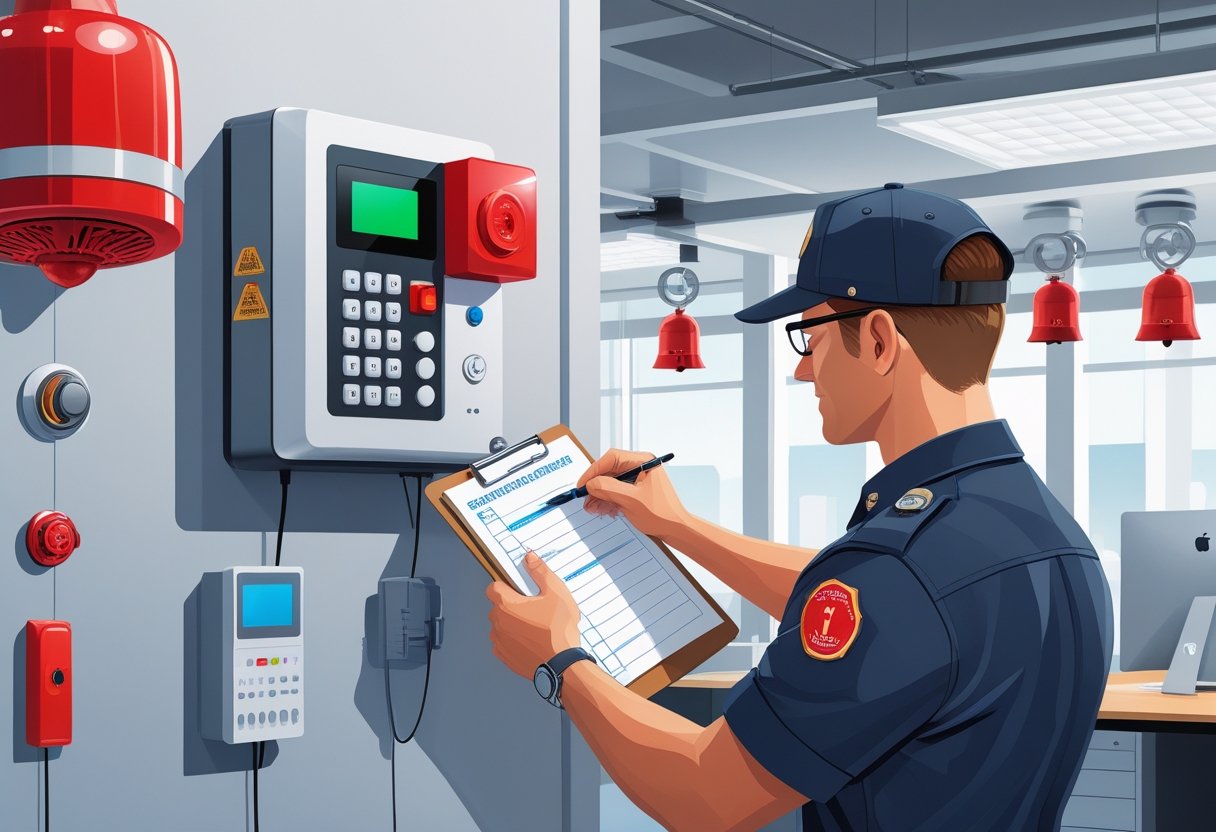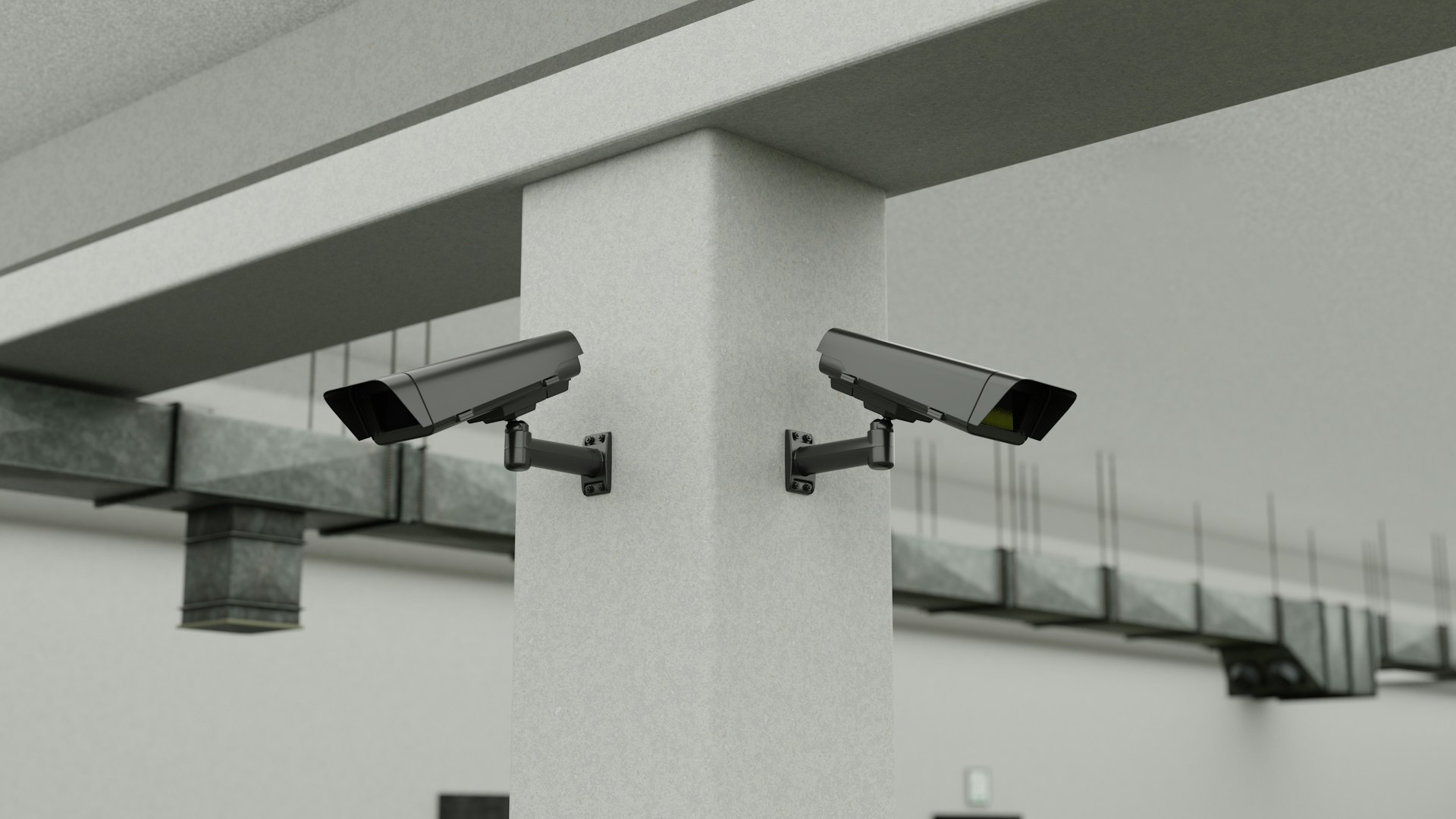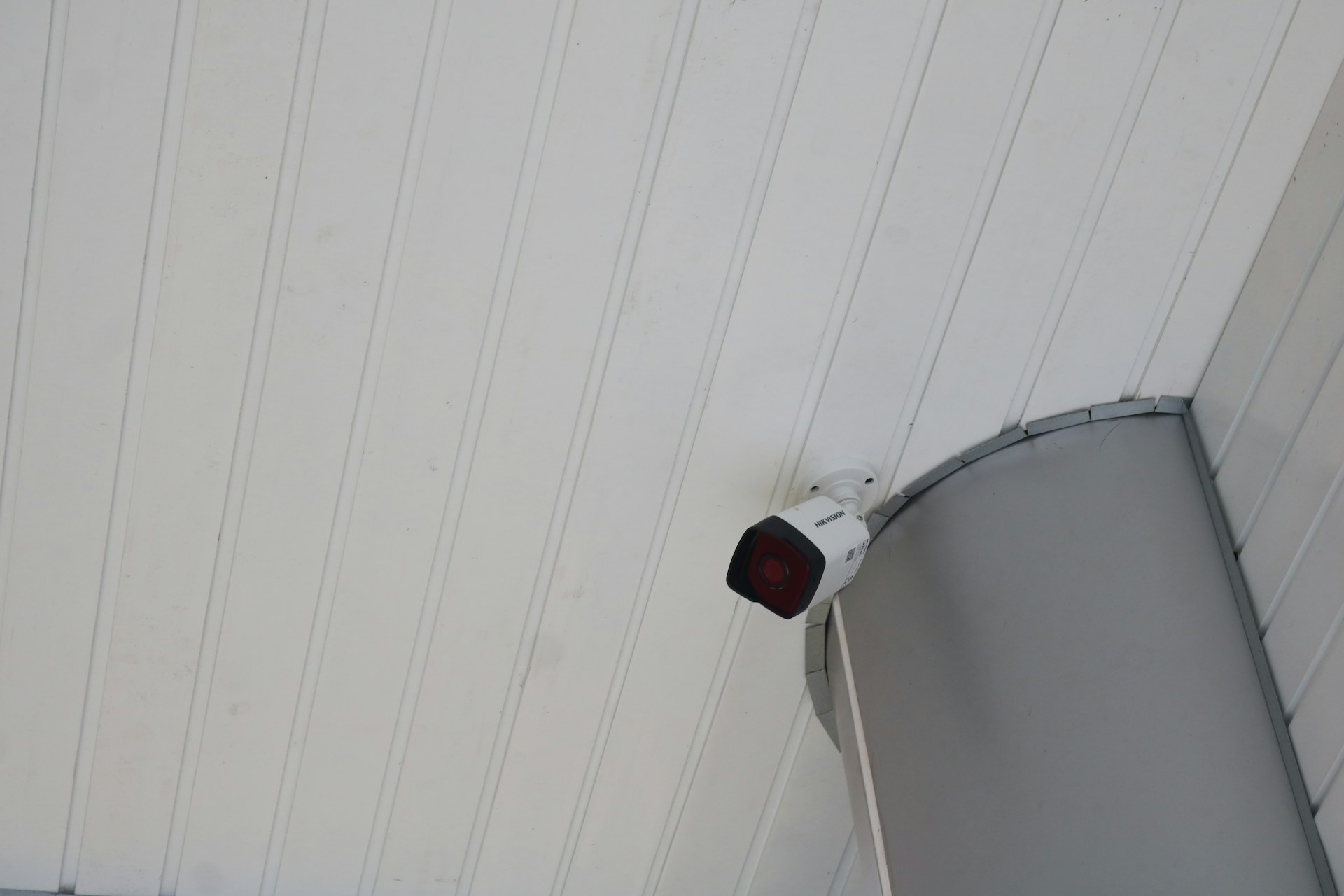When it comes to ensuring safety in your building, understanding fire alarm system certification is crucial. This certification is essential for professionals in the fire alarm industry, validating their skills in system layout, installation, servicing, and troubleshooting. With many states relying on these credentials to meet licensing requirements, it’s clear that having certified technicians on your team enhances the reliability of your fire safety systems.
In the greater Houston area, hiring certified professionals can significantly impact your fire alarm system's effectiveness. Organizations such as NICET and ESA offer specialized training programs that equip technicians with the necessary knowledge to navigate complex fire protection systems. This thorough training not only complies with local regulations but also prepares your team to handle emergencies efficiently.
Investing in fire alarm system certification means prioritizing safety for your property and peace of mind for your occupants. By choosing certified experts, you are ensuring that your fire alarm systems adhere to the highest standards, which is vital for protecting lives and property.
Overview of Fire Alarm System Certification
Fire alarm system certification is essential for ensuring that professionals possess the necessary skills and knowledge for handling fire alarm installations and maintenance. This section will outline the nature of certification, its significance, various types available, and the recognized certifying bodies in the industry.
What Is Fire Alarm System Certification
Fire alarm system certification is a formal credentialing process designed for professionals in the fire safety industry. This certification verifies that you have the requisite knowledge and practical skills to manage fire alarm systems effectively.
It encompasses various responsibilities such as system design, installation, inspection, and maintenance. Certification is usually obtained through a combination of training programs, examinations, and hands-on experience.
Having this certification is crucial not only for your credibility but also for compliance with local regulations and safety standards in the greater Houston area.
Importance of Certification for Fire Alarm Professionals
Certification in fire alarm systems is vital for ensuring safety and compliance. It establishes your authority in the field, showcasing your commitment to maintaining high standards.
By obtaining certification, you enhance your employability and potential for career advancement. Many employers require certification to ensure their staff are skilled in current codes and practices.
Furthermore, certified professionals can contribute to reducing fire risks by ensuring the proper installation and maintenance of alarm systems. This ultimately leads to safer environments in residential and commercial properties.
Types of Fire Alarm System Certifications
There are several types of fire alarm system certifications tailored to different aspects of fire safety. Here are some common certifications you may encounter:
- NICET (National Institute for Certification in Engineering Technologies) Certifications: Focus on engineering technicians involved in the design and installation of fire alarm systems.
More information can be found here. - ESA (Electronic Security Association) Fire Alarm Certifications: These certifications are for technicians, designers, and inspectors, providing knowledge to meet licensing requirements. Visit this link for more details: ESA Fire Alarm Certifications.
- NFPA (National Fire Protection Association) Certifications: This includes various programs that ensure personnel are trained in the latest safety codes and standards. More can be found here.
Each certification serves a specific purpose, allowing fire alarm professionals to specialize and advance in their careers.
Certifying Bodies and Industry Standards
Several certifying bodies oversee fire alarm system certifications, ensuring standards are met within the industry. Key entities include:
- NICET: Provides multiple levels of certification for fire alarm systems, emphasizing practical and theoretical competencies.
- ESA: Offers certifications that are widely recognized throughout various states, fulfilling local licensing requirements.
- NFPA: Sets the fundamental standards for fire alarm systems, guiding professionals in compliance with safety regulations.
Working with recognized certifying bodies helps ensure that you remain updated with evolving industry standards. Therefore, continuing education is essential for maintaining your certification.
Eligibility and Certification Requirements
Achieving certification in fire alarm systems requires specific educational background, relevant experience, and adherence to the application process. Understanding these elements is essential for success in this field.
Education and Experience Prerequisites
To qualify for fire alarm system certification, you typically need a combination of formal education and hands-on experience. Most programs require at least a high school diploma or GED, while some certifications may benefit from post-secondary education in fire protection technology or a related field.
You must also possess relevant work experience. This could include working under a certified professional or in roles involving fire alarm system layout, installation, or maintenance. For example, many positions require you to log a minimum of 2 years in the field, focusing on installation techniques and system troubleshooting.
Documentation and Application Process
The documentation and application process is crucial. You will need to gather proof of your education and work experience, including transcripts and letters of recommendation from employers or supervisors.
Most certification bodies require you to complete a specific application form, which can often be found on their websites. After submitting your application, you will typically pay a fee, which may vary depending on the certification level.
Once your application is approved, you can schedule your certification examination, ensuring you are prepared for the topics covered.
Continuing Professional Development
After obtaining your certification, you must engage in continuing professional development (CPD) to maintain it. Many certification programs mandate ongoing education, which helps you stay current with evolving fire alarm technologies and regulations.
CPD can include attending workshops, seminars, or online courses focused on advanced fire alarm system features and compliance updates. Organizations may require a specific number of CPD hours within a certain timeframe, reinforcing your commitment to professional excellence.
By adhering to these requirements, you enhance your skills and knowledge, thus ensuring the safety and efficiency of the fire alarm systems you work with in the greater Houston area.
Certification Examination Structure and Content
Understanding the certification examination's structure and content is crucial for success. This section outlines the exam levels, the content areas tested, and the various testing methods and locations available to candidates.
Exam Levels and Progression
Certification examinations for fire alarm systems typically consist of multiple levels, allowing you to progress based on your experience and knowledge.
Levels include:
- Level I: Suitable for entry-level technicians covering basic principles.
- Level II: Designed for more experienced professionals, emphasizing technical and practical skills.
- Specialized Certifications: For specific roles like the Certified Fire Alarm ITM Specialist (CFAITMS).
As you advance, you will be tested on increasingly complex topics and situations, enabling a clear pathway for career growth. Each level requires passing a comprehensive exam that assesses your expertise and readiness for real-world challenges.
Content Areas Covered
The certification examination encompasses several critical content areas relevant to fire alarm systems.
Key areas include:
- Codes and Standards: Understanding NFPA and IBC codes.
- System Design: Knowledge of layout and equipment selection.
- Installation and Testing: Skills in putting systems in place and ensuring they work correctly.
- Troubleshooting: Ability to identify and resolve issues effectively.
Familiarity with these topics is vital. Each area is tailored to reflect the competencies necessary for proficient fire alarm system management, ensuring you are well-prepared for the industry’s demands.
Testing Methods and Locations
Exams can be administered through various methods to accommodate your preferences and logistics.
Testing methods include:
- Computer-Based Testing: Allows flexibility and immediate results.
- Paper-Based Exams: Offered in select locations for those who prefer traditional formats.
Testing locations primarily serve the greater Houston area, ensuring accessibility for local candidates. You may find testing centers at various educational institutions or specialized training centers, each equipped with necessary resources.
Understanding these methods and locations can help you effectively plan your certification journey, maximizing your chances for success.
Core Technical Knowledge for Certification
To achieve certification in fire alarm systems, it is essential to understand specific technical areas. Mastering system design principles, basic electricity, and applicable codes will ensure your proficiency in this field.
System Design Principles
When designing a fire alarm system, you need to assess the structure and its intended use. Consider factors such as building layout, occupancy type, and hazard analysis.
Your design must include the selection of appropriate alarm devices, such as smoke detectors, heat detectors, and notification appliances.
In addition, understanding signal circuits and power supply configurations is crucial. You should ensure that the design meets the required standards for redundancy and reliability.
Finally, creating a system that allows for easy maintenance and future upgrades is vital for long-term functionality.
Basic Electricity and Electronics
A solid grasp of basic electricity and electronics forms the foundation of fire alarm system certification. Start with understanding OHM's Law, which relates voltage, current, and resistance in a circuit.
You'll frequently deal with low-voltage systems, typically operating in the range of 24 volts.
Familiarity with circuit components like resistors, capacitors, and transistors will help you diagnose issues effectively.
You should also learn about wiring practices, including the importance of proper gauge and insulation to prevent short circuits and ensure safety.
Understanding these principles enables you to set up and troubleshoot fire alarm systems confidently.
Applicable Codes and Standards
Knowledge of fire codes and standards is crucial for compliance and safety in fire alarm systems. Familiarize yourself with the National Fire Protection Association (NFPA) codes, particularly NFPA 72, which outlines the requirements for fire alarm systems.
You should also keep abreast of local codes relevant to the Greater Houston area, as they may have specifications that differ from national standards.
Understanding the Underwriters Laboratories (UL) standards will also be beneficial, as many equipment manufacturers adhere to these safety guidelines.
Adhering to these codes not only ensures the system is compliant but also enhances its reliability and effectiveness in an emergency.
Maintenance, Inspection, and Recertification
Proper maintenance, routine inspection, and timely recertification are essential for ensuring that fire alarm systems remain functional and compliant with safety regulations. Understanding the specific requirements within these areas is crucial for maintaining effective fire safety measures.
Ongoing Maintenance and Periodic Inspection
Regular maintenance of your fire alarm system is vital for its performance. This includes checking the functionality of alarms, testing batteries, and ensuring that all components are operational.
You should follow a structured maintenance schedule that typically includes:
- Monthly checks on device functionality
- Quarterly inspections of batteries and wiring
- Annual comprehensive inspections by certified professionals
These inspections should be documented thoroughly to maintain records for compliance and safety audits. Managing these tasks will help protect both your facility and occupants from potential fire hazards.
Recertification Procedures and Timelines
Recertification is required to validate that your fire alarm systems continue to meet local safety standards. The frequency of recertification can vary based on local regulations but typically occurs every three to five years.
You need to comply with the following procedures for effective recertification:
- Hire a Qualified Technician: Ensure the technician holds certification by recognized organizations like NICET.
- Conduct Complete System Tests: All components must be tested, including alarms, detectors, and communication systems.
- Submit Documentation: Record all tests and findings, along with any necessary repairs, for regulatory review.
Staying proactive in both maintenance and recertification will ensure your systems operate efficiently and legally in the greater Houston area.
Frequently Asked Questions
This section addresses common inquiries regarding fire alarm system certification, detailing requirements, inspection timelines, authorized organizations, and the certification process.
What are the requirements for fire alarm system certification?
To obtain fire alarm system certification, you must meet specific educational and experiential criteria. This often includes completion of relevant training programs and hands-on experience in the fire alarm industry. Additionally, applicants may need to demonstrate understanding of applicable codes and standards.
How often must fire alarm systems be inspected and certified?
Fire alarm systems typically require inspection and certification at least annually. Some jurisdictions may have more frequent requirements based on local regulations or specific facility types. Regular inspections ensure systems are functional and compliant with safety standards.
Which organizations are authorized to certify fire alarm systems?
Several organizations are recognized for certifying fire alarm systems, including the National Institute for Certification in Engineering Technologies (NICET) and the National Fire Protection Association (NFPA). These organizations establish the criteria and standards for certification, ensuring industry-wide consistency.
What is the process involved in obtaining a fire alarm system certification?
The certification process generally includes completing an application, providing evidence of qualifications, and passing an examination. You'll typically need to prepare by studying relevant codes and practices related to fire alarm systems.
Are there different types of certification for various fire alarm system components?
Yes, certifications can vary by component and system type. For instance, you may find different certifications for installation, maintenance, or inspection of fire alarm systems. Understanding these distinctions helps ensure you are adequately certified for your specific role.
What documentation is needed to apply for fire alarm system certification?
When applying for certification, you will need to submit documentation proving your education and experience. This may include transcripts, proof of training, and work experience records. Be sure to verify the specific requirements from the certifying organization to ensure a smooth application process.
.svg)



.svg)


.svg)



